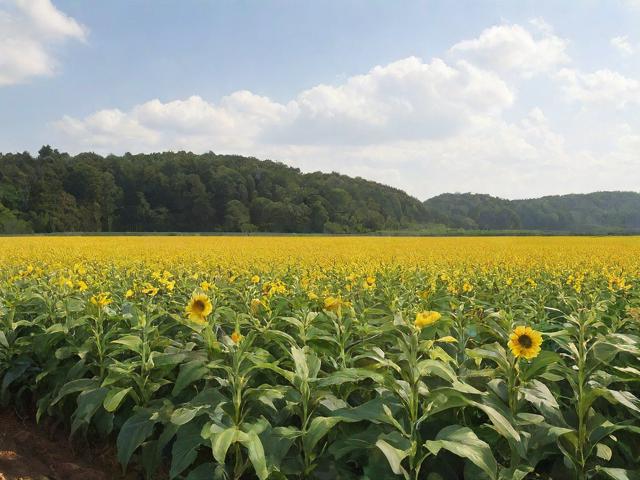Introduction
Agriculture has been the backbone of human civilization for millennia, and crops remain at its core. From staple grains like wheat and rice to cash crops like coffee and cotton, the way we grow, manage, and harvest crops directly impacts global food security, economies, and environmental sustainability. In recent years, advancements in technology, climate challenges, and shifting consumer demands have transformed traditional crop farming into a high-tech, data-driven industry. This article explores the evolution of crop management, the role of innovation, and the future of sustainable agriculture.
The Historical Significance of Crops
Crops have shaped human history, from the dawn of settled farming in the Fertile Crescent to the Green Revolution of the 20th century. Early civilizations relied on selective breeding and irrigation to maximize yields, while modern agriculture leverages genetic engineering and precision farming. The domestication of crops like maize, potatoes, and rice allowed populations to grow, trade to flourish, and cultures to thrive. Today, crops are not just a food source but also a critical component of biofuels, textiles, and pharmaceuticals.
Challenges in Modern Crop Production
Despite technological progress, crop farming faces unprecedented challenges:

- Climate Change: Rising temperatures, erratic rainfall, and extreme weather events threaten crop yields. Drought-resistant varieties and adaptive farming techniques are now essential.
- Soil Degradation: Over-farming and chemical use have depleted soil nutrients, reducing productivity. Regenerative agriculture, including cover cropping and no-till farming, is gaining traction.
- Pests and Diseases: Invasive species and pathogens, such as the fall armyworm or wheat rust, can devastate harvests. Integrated pest management (IPM) and CRISPR-edited crops offer solutions.
- Resource Scarcity: Water shortages and the high cost of fertilizers strain farmers, particularly in developing nations. Drip irrigation and organic alternatives are mitigating these issues.
Technology Transforming Crop Management
Innovations are revolutionizing how crops are grown:
- Precision Agriculture: Drones, sensors, and AI analyze soil health, moisture levels, and crop growth in real time, enabling targeted interventions.
- Vertical Farming: Urban vertical farms use hydroponics and LED lighting to grow crops with minimal land and water, reducing transportation emissions.
- Blockchain for Traceability: Consumers demand transparency. Blockchain tracks crops from farm to table, ensuring ethical sourcing and reducing fraud.
- CRISPR and GMOs: Genetic editing creates crops resistant to pests, droughts, and salinity, though regulatory and ethical debates persist.
Sustainable Practices for the Future
To feed a projected 10 billion people by 2050, sustainability is non-negotiable:
- Agroecology: Mimicking natural ecosystems, this approach combines crops with livestock and trees to enhance biodiversity.
- Climate-Smart Crops: Scientists are developing heat-tolerant wheat and flood-resistant rice to withstand climate extremes.
- Reducing Food Waste: Up to 30% of crops are lost post-harvest. Improved storage and supply chain tech can curb this.
The Human Factor: Empowering Farmers
Smallholder farmers produce over 80% of the world’s food but often lack resources. Initiatives like mobile apps for weather forecasts, microloans, and farmer cooperatives are bridging gaps. Education on sustainable practices and access to markets are equally vital.
Conclusion
The future of crops lies at the intersection of tradition and innovation. By embracing technology, prioritizing sustainability, and supporting farmers, we can ensure resilient food systems. Whether through a handful of seeds or a satellite’s gaze, the story of crops is still being written—and it’s one of hope, adaptation, and growth.
Word Count: 917









